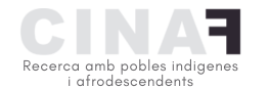Títol del Projecte: Veterinarization of Europe? Hunting for Wild Boar Futures in the Time of African Swine Fever
Descripció de la recerca: This project proposes a collaborative, ethnographic investigation of the relationship between three understudied subjects in anthropology: veterinary medicine, European hunting and wild boars. In recent decades, the wild boar has proliferated, (re)conquering the natural, rural and urban landscapes of Europe, and increasingly clashing with human practices and worlds. Classified as a game animal, the boar is primarily killed and managed by recreational hunters. Yet, hunters are proving incapable of stemming the tide of this intelligent, adaptable being, an interspecies relation that challenges hunting’s value and legitimacy in European society. This tension has amplified with the arrival of African Swine Fever (ASF) to the continent: a fatal virus that travels between wild boar and domestic pig, forest and farm, and threatens to infect and ruin the pig industry. In the name of biosecurity, and informed by veterinary knowledge, some States have intervened and conducted mass culls, erected dividing fences across Schengen space, or instituted no-go zones. During this crisis we witnessed how veterinary medicine’s role can extend beyond mediating human-animal relations, and work to structure and govern human lives in general. At the intersection of boars, hunting, ASF and veterinary medicine, this project has two main objectives: first, to examine how European hunting and porcine futures are intertwined, and the role of veterinarians in shaping these futures, and; second, through human-boar relations, study how society is becoming increasingly veterinarized and thus shape the conceptual and methodological development of the emerging field of veterinary anthropology. This project will further contribute to anthropology by opening a novel empirical and theoretical niche for the anthropology of hunting, and experiment with ethnography as a tool of engagement with near futures. The emerging and uncertain impact of ASF in Europe is an excellent moment to conduct such a project.
Investigadors: Ludek Broz (Academia Txeca de Ciencies (IP); Anibal Arregui (Universitat de Barcelona); Thorsten Gieser (University of Koblenz); Kieran O’Mahony (Univerrsity of CArdiff), Garry Mavin (Unoversity of Roehampton), Virginie Vaté-Klein (Centre Nacional de la Recherche Cientifique, France); Mariana Szczygielska (Max Plank Insitute, Germany), Laura Kuen (Czech Academy of Sciences); Erica Von Essen (Stockolm University);
Entitat financiadora: European Research Council (ERC)
Finançament: 1.999.875 euros
Període: 01/01/2020 – 31/12/2024

